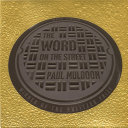Moy Sand and Gravel: Poems
সেপ ২০১৪ · Farrar, Straus and Giroux
২.৬star
১৪টি রিভিউreport
ই-বুক
120
পৃষ্ঠা
family_home
উপযুক্ত
info
reportরেটিং ও রিভিউ যাচাই করা হয়নি আরও জানুন
এই ই-বুকের বিষয়ে
Winner of the Pulitzer Prize, Moy Sand and Gravel by Paul Muldoon, "the most significant English-language poet born since the Second World War" (The Times Literary Supplement).
Paul Muldoon's ninth collection of poems, his first since Hay, finds him working a rich vein that extends from the rivery, apple-heavy County Armagh of the 1950s, in which he was brought up, to suburban New Jersey, on the banks of a canal dug by Irish navvies, where he now lives. Grounded, glistening, as gritty as they are graceful, these poems seem capable of taking in almost anything, and anybody, be it a Tuareg glimpsed on the Irish border, Bessie Smith, Marilyn Monroe, Queen Elizabeth I, a hunted hare, William Tell, William Butler Yeats, Sitting Bull, Ted Hughes, an otter, a fox, Mr. and Mrs. Stanley Joscelyne, an unearthed pit pony, a loaf of bread, an outhouse, a killdeer, Oscar Wilde, or a flock of redknots.
At the heart of the book is an elegy for a miscarried child, and that elegiac tone predominates, particularly in the elegant remaking of Yeats's "A Prayer for My Daughter" with which the book concludes, where a welter of traffic signs and slogans, along with the spirits of admen, hardware storekeepers, flimflammers, fixers, and other forebears, are borne along by a hurricane-swollen canal, and private grief coincides with some of the gravest matter of our age.
Paul Muldoon's ninth collection of poems, his first since Hay, finds him working a rich vein that extends from the rivery, apple-heavy County Armagh of the 1950s, in which he was brought up, to suburban New Jersey, on the banks of a canal dug by Irish navvies, where he now lives. Grounded, glistening, as gritty as they are graceful, these poems seem capable of taking in almost anything, and anybody, be it a Tuareg glimpsed on the Irish border, Bessie Smith, Marilyn Monroe, Queen Elizabeth I, a hunted hare, William Tell, William Butler Yeats, Sitting Bull, Ted Hughes, an otter, a fox, Mr. and Mrs. Stanley Joscelyne, an unearthed pit pony, a loaf of bread, an outhouse, a killdeer, Oscar Wilde, or a flock of redknots.
At the heart of the book is an elegy for a miscarried child, and that elegiac tone predominates, particularly in the elegant remaking of Yeats's "A Prayer for My Daughter" with which the book concludes, where a welter of traffic signs and slogans, along with the spirits of admen, hardware storekeepers, flimflammers, fixers, and other forebears, are borne along by a hurricane-swollen canal, and private grief coincides with some of the gravest matter of our age.
রেটিং ও পর্যালোচনাগুলি
২.৬
১৪টি রিভিউ
লেখক সম্পর্কে
Paul Muldoon was born in County Armagh in 1951. He now lives in New York. A former radio and television producer for the BBC in Belfast, he has taught at Princeton University for thirty years. He is the author of more than a dozen previous collections of poetry, including Moy Sand and Gravel, for which he won the 2003 Pulitzer Prize; Selected Poems 1968–2014; and Howdie-Skelp.
ই-বুকে রেটিং দিন
আপনার মতামত জানান।
পঠন তথ্য
স্মার্টফোন এবং ট্যাবলেট
Android এবং iPad/iPhone এর জন্য Google Play বই অ্যাপ ইনস্টল করুন। এটি আপনার অ্যাকাউন্টের সাথে অটোমেটিক সিঙ্ক হয় ও আপনি অনলাইন বা অফলাইন যাই থাকুন না কেন আপনাকে পড়তে দেয়।
ল্যাপটপ ও কম্পিউটার
Google Play থেকে কেনা অডিওবুক আপনি কম্পিউটারের ওয়েব ব্রাউজারে শুনতে পারেন।
eReader এবং অন্যান্য ডিভাইস
Kobo eReaders-এর মতো e-ink ডিভাইসে পড়তে, আপনাকে একটি ফাইল ডাউনলোড ও আপনার ডিভাইসে ট্রান্সফার করতে হবে। ব্যবহারকারীর উদ্দেশ্যে তৈরি সহায়তা কেন্দ্রতে দেওয়া নির্দেশাবলী অনুসরণ করে যেসব eReader-এ ফাইল পড়া যাবে সেখানে ট্রান্সফার করুন।








